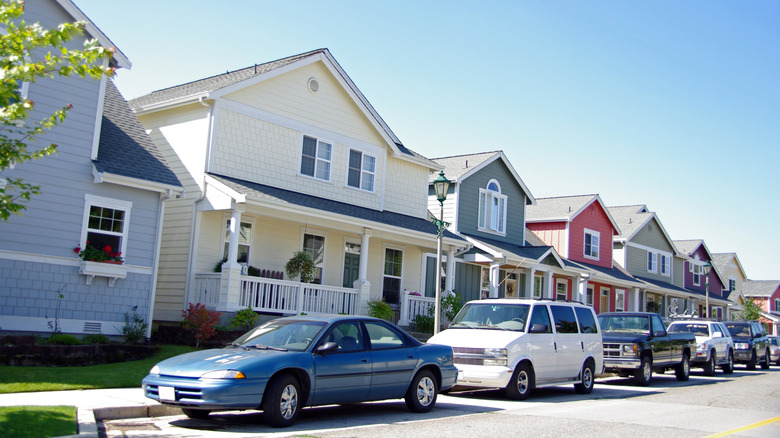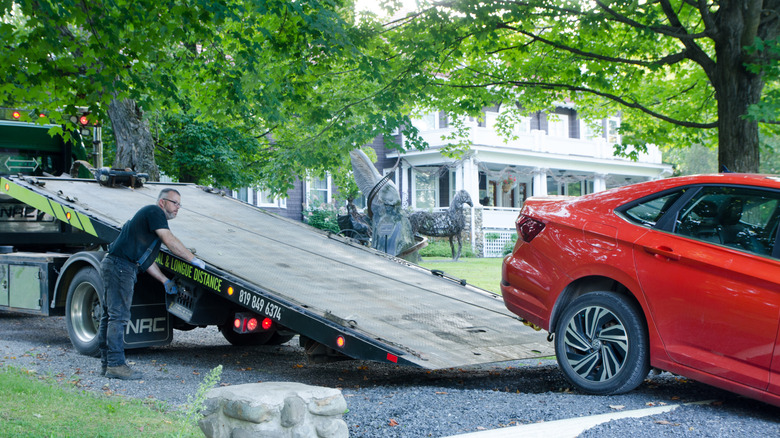Is It Legal To Park Your Car In Front Of A Neighbor's House?
Parking in front of a neighbor's house is one of those innocent situations that can stir up big emotions. For the person behind the wheel, maybe it's the most convenient place to park after a long day, or it's the quickest place to unload groceries, or it just saves time from having to circle the block — again. Harmless, right? Well, to many homeowners, that strip of curb feels like "theirs," almost like an extension of the front yard. So when someone else claims it, it can stir up a mix of annoyance, frustration, or even resentment. But the thing is, that space doesn't actually belong to them.
In most cities, streets are public property, which means you can park in front of your neighbor's house, as long as you're following the rules. That usually means no blocking driveways, no crowding fire hydrants, and not ignoring posted restrictions. Beyond that, it's often fair game. However, what's legal and what's considered neighborly don't always match up. Even though parking on a public street is allowed, it can still ruffle feathers. But just like you think twice before moving your neighbor's stuff off your property, the same logic should apply to parking in front of their house. Things can quickly gets iffy when you go into certain legal technicalities, which can vary by state, city, or even communities. Understanding the rules about parking in front of your neighbor's home can help you avoid conflicts and stay on the right side of the law.
What to know about parking in front of your neighbor's house
There are lots of predicaments that come with living in a neighborhood. Some relationships start innocently enough, but can quickly turn sour when your newest home renovation upsets neighbors. Other scenarios are more challenging, like what to do about your neighbor's unkempt yard. However, few neighborhood squabbles feel as petty — or personal — as parking. That's when knowing the laws and rules of your community can be helpful.
Generally, public roads are fair game as long as the street is maintained by the city or county; however, there are some restrictions. The majority of U.S. states don't allow cars to be parked for more than 72 hours or the city or an unhappy neighbor can legally have the car towed. In some states, like Texas, the time is even shorter as if your car sits in the same spot for over 24 hours, it can be towed without legal consequences to the neighbor (except resentment on your part, of course). That also goes for blocking your neighbor's driveway, or parking near a fire hydrant and sidewalk ramps. Most communities have laws against parking certain vehicle types, like boats and RVs.
Keep in mind, homeowners' associations can only enforce violations within common areas — city-maintained streets don't count, but private roads in gated communities likely do. Your best bet is to check local ordinances or speak with your neighbor before leaving your vehicle for multiple days. Communication goes a long way and can keep hostility at bay.

